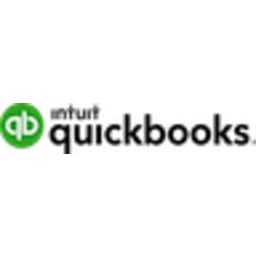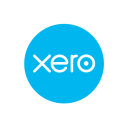Sage Intacct vs QuickBooks: Choosing the best financial management solution
- 01Sage Intacct vs QuickBooks: overview
- 02What's the difference between Sage Intacct and QuickBooks?
- 03Sage Intacct pros and cons
- 04QuickBooks pros and cons
- 05Sage Intacct compared to QuickBooks
- 06QuickBooks compared to Sage Intacct
- 07Features comparison
- 08Sage Intacct vs QuickBooks: Which is the best for your business?
- 09Promotions on Accounting software
- 10Alternatives to Sage Intacct & QuickBooks
Save up to $352 on QuickBooks
Save up to $352 on QuickBooks
With robust accounting software, you can streamline financial processes, improve accuracy, and gain valuable insights into your business's financial health. Managing your finances effectively is critical to sustainable business growth. By automating tasks like invoicing, expense tracking, and financial reporting, you can focus more on strategic decision-making and less on manual entry and reconciliation.
When it comes to accounting software, you have many options to choose from. While having multiple choices is beneficial, finding the right fit for your business can be challenging. To help you navigate this decision, read on for our detailed comparison of Sage Intacct vs QuickBooks, including their key features and essential differences.
Sage Intacct vs QuickBooks: overview
Sage Intacct and QuickBooks stand out as leading contenders in the field of accounting software, each bringing unique strengths tailored to different business needs.
Sage Intacct is renowned for its robust financial management capabilities, offering an advanced, cloud-based platform that excels in multi-entity accounting, detailed financial reporting, and scalable solutions designed for growing businesses. On the other hand, QuickBooks provides a more user-friendly, comprehensive accounting solution that caters primarily to small to mid-sized businesses. It offers features like invoicing, expense tracking, payroll management, and basic financial reporting, making it an accessible choice for businesses seeking an all-in-one accounting tool that’s easy to implement and manage.
Let’s delve into the Sage Intacct vs. QuickBooks comparison to help you make an informed decision when selecting the right accounting software for your business.
What's the difference between Sage Intacct and QuickBooks?
While Sage Intacct and QuickBooks are both popular accounting software solutions, there are significant differences between them that you should consider when choosing the right tool for your business.
First, let's look at their target audiences and scalability. QuickBooks is often favored by small to mid-sized businesses due to its user-friendly interface and comprehensive set of basic accounting features. It offers tools for invoicing, expense tracking, payroll, and basic financial reporting, making it an accessible choice for businesses with straightforward accounting needs. However, as businesses grow and their financial processes become more complex, QuickBooks might start to show its limitations, particularly in handling multi-entity accounting or generating highly detailed financial reports.
In contrast, Sage Intacct is designed with mid-sized to large enterprises in mind, particularly those that require advanced financial management capabilities. It excels in providing multi-entity and multi-currency accounting, robust financial reporting, and deep customization options. Sage Intacct’s cloud-based platform offers powerful automation features and real-time financial insights, which are crucial for businesses with complex financial operations. Its modular approach allows businesses to add features as they grow, making it a more scalable solution compared to QuickBooks.
Both platforms offer integration with other business tools, but Sage Intacct is often chosen by companies that need to integrate with specialized third-party applications or require more complex financial ecosystems. QuickBooks, on the other hand, integrates well with a variety of small business tools, making it ideal for businesses that need a simple, all-in-one solution.
When deciding between Sage Intacct and QuickBooks, consider the complexity of your financial needs, the size of your business, and your growth plans. Sage Intacct offers a more sophisticated and scalable solution, while QuickBooks provides a simpler, more cost-effective option for smaller businesses.
50% off QuickBooks Online for 3 months on QuickBooks
Get 50% off QuickBooks Online for 3 months on QuickBooks and up to $352 savings with Secret.
Sage Intacct pros and cons
What are the advantages of Sage Intacct?
- Advanced financial management: Sage Intacct offers robust financial management features, including multi-entity and multi-currency accounting, which are ideal for complex organizations and businesses that operate across multiple locations or countries.
- Scalability: Sage Intacct is highly scalable, making it suitable for growing businesses. As your company expands, you can add more modules and features to meet your evolving needs.
- Real-time reporting and insights: The platform provides real-time financial reporting and dashboards, allowing you to access up-to-date financial data and insights, which can enhance decision-making processes.
- Customizable and flexible: Sage Intacct offers a high level of customization, allowing businesses to tailor the platform to their specific needs. You can customize reports, dashboards, and workflows to match your business processes.
- Cloud-based and accessible: Being a cloud-based solution, Sage Intacct allows for remote access, enabling teams to work from anywhere with internet connectivity. This is particularly valuable for businesses with distributed teams or those that require mobile access.
What are the disadvantages of Sage Intacct?
- Steeper learning curve: Due to its advanced features and customization options, Sage Intacct can have a steeper learning curve, especially for users who are not familiar with complex accounting software.
- Higher cost: Sage Intacct is generally more expensive than simpler accounting solutions like QuickBooks. Its pricing structure can be a barrier for smaller businesses or those with limited budgets.
- Limited payroll functionality: Unlike some competitors, Sage Intacct does not offer built-in payroll functionality. Businesses need to rely on third-party integrations for payroll management, which may add complexity and cost.
- Complex setup and implementation: The initial setup and implementation of Sage Intacct can be time-consuming and may require professional assistance, particularly for larger organizations with complex needs.
- Less suitable for small businesses: Sage Intacct's extensive features and higher costs make it less ideal for small businesses with straightforward accounting needs. For smaller businesses, the software may be overkill compared to more basic accounting solutions.
QuickBooks pros and cons
What are the advantages of QuickBooks?
- User-friendly interface: QuickBooks is known for its intuitive and easy-to-navigate interface, making it accessible for users with varying levels of accounting knowledge. Small business owners can often set up and manage their finances without needing extensive accounting expertise.
- Comprehensive features for small businesses: QuickBooks offers a wide range of features tailored to small businesses, including invoicing, expense tracking, payroll management, and basic financial reporting. It provides everything a small business needs to manage its finances in one place.
- Affordable pricing: QuickBooks offers a variety of pricing plans, including affordable options that make it accessible to small businesses and startups with limited budgets. The flexibility in pricing allows businesses to choose a plan that suits their needs.
- Wide integration options: QuickBooks integrates with numerous third-party applications, including popular tools for e-commerce, payroll, CRM, and project management. This makes it easy to connect QuickBooks with other systems you’re already using.
- Cloud-based access: QuickBooks Online allows users to access their financial data from anywhere with an internet connection. This cloud-based access is especially beneficial for businesses with remote teams or for owners who need to manage their finances on the go.
What are the disadvantages of QuickBooks?
- Limited scalability: While QuickBooks is ideal for small businesses, it may struggle to meet the needs of growing companies or businesses with complex accounting requirements, such as multi-entity accounting or advanced financial reporting.
- Basic reporting features: QuickBooks offers basic financial reports, but it lacks the depth and customization options available in more advanced accounting software like Sage Intacct. Businesses needing detailed, multi-dimensional reports may find QuickBooks insufficient.
- Customer support concerns: Some users report inconsistent experiences with QuickBooks customer support, including long wait times and varying levels of expertise among support representatives.
- Potential for data limits: For businesses with a high volume of transactions or data, QuickBooks may encounter performance issues or data limitations. This can result in slower processing times and the need to upgrade to a more robust system.
- Costs can add up: While QuickBooks starts with affordable plans, the cost can increase significantly with add-ons and additional features, such as payroll, advanced reporting, or integration with other business tools. These additional costs can make QuickBooks more expensive over time.
Compare QuickBooks to other tools
Sage Intacct compared to QuickBooks
Sage Intacct offers advanced financial management capabilities designed for mid-sized to large businesses, excelling in areas like multi-entity accounting, real-time reporting, and scalability. It provides a customizable platform that can handle complex financial operations, making it ideal for growing companies with sophisticated needs.
In contrast, QuickBooks is a more user-friendly, affordable solution geared towards small to mid-sized businesses. While it offers essential accounting features like invoicing and expense tracking, QuickBooks may struggle to meet the demands of larger organizations. Sage Intacct is better suited for businesses seeking robust, scalable financial solutions, while QuickBooks is ideal for simpler, smaller-scale operations.
Is Sage Intacct better than QuickBooks?
Whether Sage Intacct is better than QuickBooks depends on your business's specific needs and scale. Sage Intacct is superior for mid-sized to large businesses that require advanced financial management, offering robust features like multi-entity accounting, detailed financial reporting, and extensive customization. It’s built to handle complex financial operations and supports scalability as your business grows.
On the other hand, QuickBooks excels in simplicity and affordability, making it ideal for small businesses with straightforward accounting needs. If your business demands sophisticated financial tools and scalability, Sage Intacct is the better choice. For simpler, cost-effective accounting, QuickBooks remains a strong contender.
What is Sage Intacct best used for?
Sage Intacct is best used for businesses that require advanced financial management capabilities, particularly in industries like healthcare, professional services, and non-profits. It excels in handling complex accounting tasks such as multi-entity and multi-currency management, comprehensive financial reporting, and real-time data insights.
The platform is ideal for organizations that need scalable solutions to support growth and require extensive customization to match their unique financial processes. Sage Intacct’s cloud-based architecture also makes it suitable for companies looking for a flexible, remote-accessible solution that integrates seamlessly with other business applications. It’s particularly valuable for companies with sophisticated financial needs.
Can Sage Intacct replace QuickBooks?
Sage Intacct can replace QuickBooks for businesses that have outgrown the capabilities of QuickBooks and require more advanced financial management tools. While QuickBooks is excellent for small businesses with straightforward accounting needs, Sage Intacct offers more robust features such as multi-entity consolidation, detailed financial reporting, and greater scalability, making it a better fit for mid-sized to large organizations. S
age Intacct is particularly suited for companies that need more customization, real-time insights, and support for complex financial processes. However, for smaller businesses with simpler needs, QuickBooks remains a cost-effective and user-friendly solution.
Is Sage Intacct cheaper than QuickBooks?
Sage Intacct is generally not cheaper than QuickBooks. While QuickBooks is designed to be an affordable solution for small to mid-sized businesses, offering various pricing plans that cater to different budgets, Sage Intacct is a more premium product tailored for mid-sized to large businesses with complex financial needs.
The higher cost of Sage Intacct reflects its advanced features, scalability, and customization options, which go beyond the capabilities of QuickBooks. Therefore, while QuickBooks offers a cost-effective option for simpler accounting tasks, Sage Intacct is an investment for businesses that require comprehensive financial management and are willing to pay for it.
Is there a better Accounting software than Sage Intacct?
While Sage Intacct is a powerful financial management solution, it's essential to consider alternatives that might better align with your specific needs.
Some notable alternatives to Sage Intacct in the accounting software space include NetSuite, Microsoft Dynamics 365 Finance, QuickBooks Enterprise, and Xero.
The selection of accounting software depends on your business's unique requirements, scale, and desired feature set. For example, if your business requires an integrated ERP system with advanced financial and operational capabilities, NetSuite might be a superior choice. On the other hand, if you seek enterprise-level functionality with deep integration into the Microsoft ecosystem, Microsoft Dynamics 365 Finance could be a more suitable option.
QuickBooks compared to Sage Intacct
QuickBooks is a popular accounting solution designed for small to mid-sized businesses, offering ease of use, affordability, and essential accounting features like invoicing, expense tracking, and basic financial reporting.
In comparison, Sage Intacct caters to mid-sized to large organizations with more complex financial needs, providing advanced capabilities such as multi-entity management, comprehensive financial reporting, and greater scalability. While QuickBooks is ideal for businesses with straightforward accounting requirements, Sage Intacct is better suited for companies needing robust financial management and customization options.
Is QuickBooks better than Sage Intacct?
QuickBooks can be considered better than Sage Intacct for small to mid-sized businesses that prioritize ease of use and affordability over advanced features. It’s an excellent choice for companies with straightforward accounting needs, offering essential tools like invoicing, expense tracking, and basic reporting in a user-friendly interface. QuickBooks simplifies financial management for businesses that don’t require the complex, scalable solutions provided by Sage Intacct.
However, for businesses that expect significant growth or have complex financial requirements, Sage Intacct would be the more appropriate choice, as QuickBooks may lack the advanced capabilities needed for such scenarios.
What is QuickBooks best used for?
QuickBooks is best used for small to mid-sized businesses that need a straightforward and affordable accounting solution. It excels in managing day-to-day financial tasks such as invoicing, expense tracking, payroll processing, and basic financial reporting.
QuickBooks is particularly well-suited for businesses with relatively simple financial operations, offering an intuitive interface that allows business owners and managers to handle their accounting without needing extensive financial expertise. Its cloud-based version, QuickBooks Online, is also ideal for businesses that require remote access and integration with other essential business tools, making it a versatile option for smaller enterprises.
Can QuickBooks replace Sage Intacct?
QuickBooks generally cannot fully replace Sage Intacct for businesses with complex financial needs. While QuickBooks is an excellent solution for small to mid-sized businesses with straightforward accounting tasks, it lacks the advanced features and scalability that Sage Intacct offers. Sage Intacct provides robust financial management capabilities, including multi-entity consolidation, in-depth reporting, and extensive customization, making it suitable for larger organizations or those with intricate financial operations.
QuickBooks may serve as a starting point, but as businesses grow and their financial processes become more complex, they often outgrow QuickBooks and require a more sophisticated solution like Sage Intacct.
Is QuickBooks cheaper than Sage Intacct?
Yes, QuickBooks’s pricing is generally cheaper than Sage Intacct. QuickBooks offers a range of pricing plans that are designed to be affordable for small to mid-sized businesses, making it a cost-effective choice for those with straightforward accounting needs. In contrast, Sage Intacct is a more premium solution tailored for mid-sized to large businesses with complex financial requirements.
The higher cost of Sage Intacct reflects its advanced features, scalability, and extensive customization options. Therefore, while QuickBooks is a more budget-friendly option, especially for smaller businesses, Sage Intacct is an investment for those needing more sophisticated financial management capabilities.
Is there a better Accounting software than QuickBooks?
While QuickBooks is a widely-used accounting software, it's important to consider other alternatives that may better suit your specific business needs.
Several notable alternatives to QuickBooks in the accounting software space include Xero, FreshBooks, NetSuite, and Wave.
The choice depends on your business’s unique requirements, goals, and any particular preferences you might have. However, if you are looking for a solution that excels in ease of use, affordability, and comprehensive small business accounting features, QuickBooks may still be the best option. For businesses requiring more advanced capabilities, scalability, or industry-specific features, exploring these alternatives might be more beneficial.
50% off QuickBooks Online for 3 months on QuickBooks
Get 50% off QuickBooks Online for 3 months on QuickBooks and up to $352 savings with Secret.
Features comparison
QuickBooks Excels Over Sage Intacct in Automated Tax Calculation Features
QuickBooks takes the edge when it comes to automated tax calculations, making it an ideal choice for businesses that need to streamline their tax processes. With QuickBooks, users can automatically calculate taxes on purchases, sales, and payroll, significantly reducing the risk of errors and saving valuable time. For instance, QuickBooks can automatically apply the correct tax rates based on your location and update these rates as tax laws change, ensuring compliance with minimal effort.
While Sage Intacct offers robust financial management tools, its tax management features are less focused on automation, requiring more manual input and adjustments. This makes QuickBooks particularly advantageous for small to mid-sized businesses that need a reliable, hands-off approach to handling taxes.
QuickBooks Outshines Sage Intacct in User-Friendliness for Small Businesses
When it comes to ease of use, both Sage Intacct and QuickBooks have made significant efforts to simplify the user experience. However, QuickBooks edges forward with its more intuitive and accessible interface, particularly for small business owners and users without extensive accounting backgrounds. QuickBooks offers a clean, straightforward design that allows users to easily navigate through tasks like invoicing, expense tracking, and financial reporting.
In contrast, while Sage Intacct provides powerful features and customization options, its interface can be more complex and may require a steeper learning curve, making it less user-friendly for beginners.
QuickBooks Leads Sage Intacct in Comprehensive Integration Capabilities
Both Sage Intacct and QuickBooks offer robust integration capabilities, allowing businesses to connect their accounting software with other essential tools and applications. However, QuickBooks takes a more comprehensive approach to integrations, especially for small to mid-sized businesses. QuickBooks seamlessly integrates with a wide range of popular payment gateways, ecommerce platforms, and more, including PayPal, Shopify, Square, and HubSpot, enabling users to manage finances, sales, and customer relationships all within a single platform.
Additionally, QuickBooks offers extensive support for third-party plugins and has an active developer community, making it easier for businesses to customize their workflows. In contrast, while Sage Intacct provides strong integration options, particularly for enterprise-level applications, it may require more specialized knowledge and resources to implement and manage these integrations effectively.
Sage Intacct Surpasses QuickBooks in Comprehensive Financial Management Features
While both Sage Intacct and QuickBooks offer essential features for financial management, Sage Intacct's offerings are notably more comprehensive, particularly for businesses with complex financial needs. Sage Intacct provides a wide array of advanced tools designed to help entrepreneurs and finance teams manage their finances more effectively. These include sophisticated cash flow management, multi-entity consolidation, and detailed expense tracking.
Additionally, Sage Intacct excels in generating customizable financial reports that provide real-time insights into business performance. This allows entrepreneurs to make informed decisions quickly and efficiently, freeing up time to focus on strategic growth and other critical aspects of their business. In contrast, QuickBooks, while effective for basic accounting tasks, may not offer the same depth of features needed by larger or more complex organizations.
Sage Intacct and QuickBooks Both Shine in Cash Flow Management, Each with Unique Strengths
Both Sage Intacct and QuickBooks offer efficient tools for monitoring cash flow, though they cater to different needs. Sage Intacct positions itself as a "cash flow guru," providing advanced features that allow users to monitor and forecast cash inflows and outflows with precision. For example, Sage Intacct's cash management module offers detailed analytics and customizable dashboards, enabling businesses to project future cash needs and optimize liquidity.
On the other hand, QuickBooks offers real-time access to cash flow by seamlessly connecting to users' bank accounts. This integration allows users to view up-to-date cash flow information instantly, track expenses, and manage income with ease. QuickBooks also simplifies the reconciliation process by automatically categorizing transactions and matching them with bank statements. Both tools ensure that users can maintain a clear understanding of their financial position at all times, but Sage Intacct’s advanced forecasting capabilities may appeal more to larger businesses with complex financial structures, while QuickBooks' real-time simplicity is ideal for smaller enterprises seeking straightforward cash flow management.
QuickBooks Leads Sage Intacct in Personalized Invoicing Capabilities
When it comes to personalized invoicing, QuickBooks clearly stands out, offering features that cater specifically to businesses needing customizable and efficient billing processes. QuickBooks allows users to create and send personalized invoices tailored to each client, complete with branding, payment terms, and detailed line items. Additionally, QuickBooks offers the ability to track invoice statuses in real-time, enabling users to see when invoices are viewed and paid. The software also automates payment reminders, sending notifications for unpaid invoices, which helps maintain consistent cash flow.
While Sage Intacct excels in robust financial reporting and analysis, it does not emphasize personalized invoicing to the same extent as QuickBooks. Sage Intacct’s focus is more on advanced financial management, leaving the customizable billing features less prominent. For businesses that prioritize personalized and efficient invoicing as a key part of their operations, QuickBooks provides a more user-friendly and flexible solution.
Sage Intacct Outshines QuickBooks for Startups Planning for Growth
For startups with ambitious growth plans, Sage Intacct could be a more fitting choice due to its focus on scalability and automation. Sage Intacct's "growth accelerator" feature is designed to help businesses expand without being bogged down by increasingly complex accounting processes. By automating key financial workflows, such as multi-entity consolidations and revenue recognition, Sage Intacct allows growing companies to manage their finances more efficiently and with fewer manual interventions.
While QuickBooks also offers automation for tasks like invoicing and expense tracking, it doesn't specifically emphasize features tailored for long-term growth and scalability. QuickBooks is well-suited for small businesses with straightforward needs, but as your business scales, Sage Intacct’s advanced automation capabilities become increasingly valuable. Sage Intacct empowers startups to focus on strategic growth initiatives rather than getting caught up in the complexities of evolving financial operations.
Subscribe to our newsletters.
No FOMO here. Stay up-to-date on all the latest deals and news with our monthly newsletter straight to your inbox like 126,000+ entrepreneurs (+ Get 10% off on on our Premium Membership!)
Sage Intacct vs QuickBooks: Which is the best for your business?
Sage Intacct is the best tool for you if:
- You require advanced multi-entity and multi-currency management to handle complex financial structures across various locations and business units seamlessly.
- Your business demands real-time financial reporting with customizable dashboards to gain deep insights and make data-driven decisions quickly.
- You need a scalable solution that grows with your business, offering advanced features like automated workflows and robust financial controls.
- Integration with other specialized business applications is crucial, allowing you to create a comprehensive, connected financial ecosystem.
- You value a cloud-based platform that offers accessibility, flexibility, and the ability to manage finances from anywhere with robust security.
QuickBooks is the best tool for you if:
- You are a small to mid-sized business seeking an affordable and user-friendly accounting solution that covers basic financial tasks like invoicing, expense tracking, and payroll management.
- You want a straightforward, easy-to-navigate platform that doesn't require extensive accounting knowledge, allowing you to manage your finances without professional help.
- You need seamless integration with popular business apps, such as PayPal, Shopify, and Square, to streamline your financial operations in one centralized system.
- Real-time access to your financial data is crucial, and you prefer cloud-based software that allows you to manage your accounts from anywhere.
- You require automated tax calculations to simplify compliance, reducing manual effort and minimizing the risk of errors in your tax filings.
50% off QuickBooks Online for 3 months on QuickBooks
Get 50% off QuickBooks Online for 3 months on QuickBooks and up to $352 savings with Secret.
Alternatives to Sage Intacct & QuickBooks
Promotions on Accounting software
Start saving on the best SaaS with Secret.
Secret has already helped tens of thousands of startups save millions on the best SaaS like Sage Intacct, QuickBooks & many more. Join Secret now to buy software the smart way.













